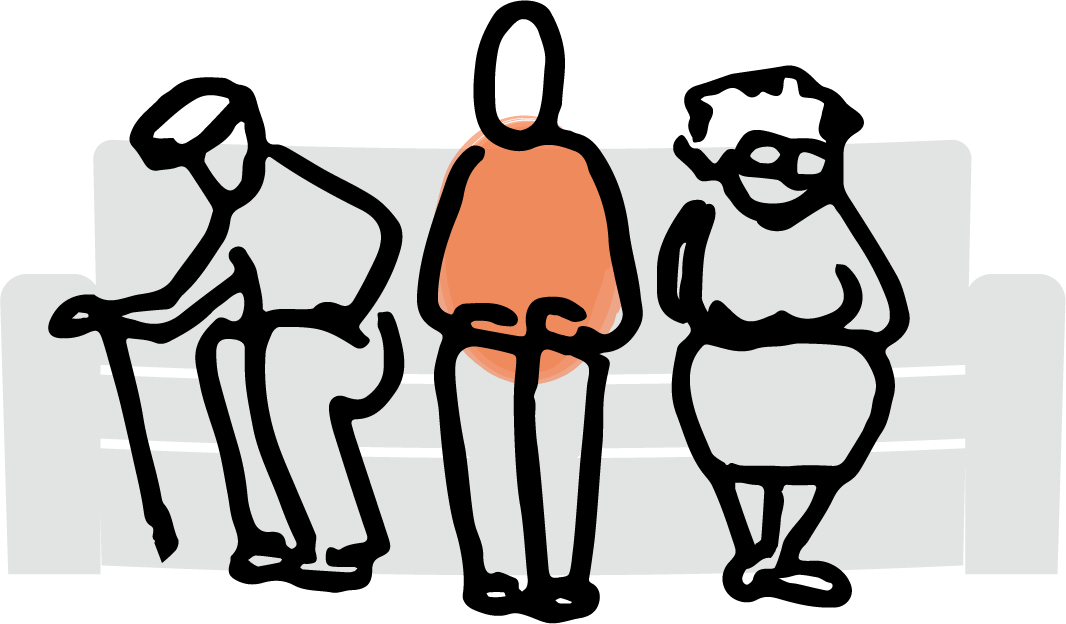Home Alone
Loneliness is a silent epidemic. Is your parent at risk?
Loneliness isn’t the kind of feel-good topic people want to think about. But it’s important.
The sugar high from the holidays is behind us and we’re heading into the heart of winter. The days are short. The nights are long.
And if your parent is struggling with loneliness or social isolation, the seasonal shift can be challenging.
Here’s what you need to know and what to watch for — especially if Mom or Dad lives alone.
The Biology of Loneliness
Everyone feels lonely from time to time. But chronic loneliness or social isolation has serious long-term physical and mental health consequences.
A growing body of research links loneliness and social isolation to everything from high blood pressure, heart disease and obesity to anxiety, depression, dementia, and — wait for it — death.
The problem is widespread and getting worse. In 2023, the U.S. Surgeon General issued an Advisory calling loneliness and isolation an epidemic. The announcement cited a buzz-worthy warning that loneliness is as bad for your health as smoking up to 15 cigarettes a day.
Over time, the cumulative effects of chronic loneliness take a toll, says Steve Cole, PhD, Professor of Medicine and Psychiatry and Biobehavioral Sciences in the UCLA School of Medicine.
“Loneliness acts as a fertilizer for other diseases. The biology of loneliness can accelerate the buildup of plaque in arteries, help cancer cells grow and spread, and promote inflammation in the brain leading to Alzheimer’s disease.”
The consequences are particularly severe for older adults. One study, conducted before the pandemic, found that older adults who describe themselves as lonely have a 59% greater risk of functional decline and a 45% greater risk of death.
Lonely older adults also make ideal targets for sweetheart scammers looking to exploit the need for human connection.
Is Your Parent at Risk?
Loneliness and social isolation are different but related.
Loneliness is subjective. It’s the distressing feeling of being alone or separated. Social isolation is the lack of regular social contacts and interactions.
So just because your parent lives alone doesn’t automatically mean they’re lonely. And just because they live with others doesn’t mean they can’t feel alone.
Key risk factors to watch for include:
- Separation from friends and family
- Major life transitions or losses
- Loss of mobility or access to transportation
- Hearing, vision, or memory loss
- Incontinence
- Fear of falling or driving after dark
- Cognitive impairment or depression
Worried your parent is isolated? AARP’s “Connect2Affect” program offers a free online self-assessment. If possible, take it together with your parent as a way to break the ice on a sensitive topic.
Or, complete it for your parent to get a better understanding of their risk and recommendations based on the results.
(While you’re at it, take the assessment for yourself! Family caregivers are at extremely high risk for loneliness and isolation.)
Is it depression? Your parent’s loneliness could be a sign of depression, which is common among older adults and often overlooked. But don’t play doctor. If your parent seems sad or anxious, or uninterested in anything for more than a couple weeks, it’s time for a proper medical evaluation.
What You Can Do
Talk with your parent. Ask Dad how he’s feeling. Share your concerns. You’ll know quickly if he’s willing to open up. If not, back off and try again in a few days. There’s only so much you can do.
Schedule time to call or video chat every day. Ask how Mom is doing. Tell her how you’re doing. Tell her you care. Can’t handle every day? Try twice during the week and once on the weekend. Small talk is fine. What matters is frequency and consistency.
Bonus points: Set up a call schedule for your siblings and any grandchildren.
Visit in person on a regular basis. Better: Take your parent out for errands, coffee, or lunch. Too far away to visit? Consider hiring a companion caregiver.
Check out local resources and programs. Start with your parent’s local Council on Aging, senior center, and public library. Some faith-based congregations also provide onsite activiites and outreach programs.
Explore volunteer opportunities. Depending on your parent’s mobility, volunteering can be a great way to start making new connections in the community while helping others. And it’s good for them: Volunteering leads to lower rates of depression and anxiety in older adults and greater life satisfaction.
For More:
- Free Online Social Isolation Self-Assessment(Connect2Affect)
- Eldercare Locator (U.S. Administration on Aging) Use this national referral resource to find help for many issues affecting older adults and their families, including social isolation and loneliness.
- Depression and Older Adults (National Institute on Aging)
- Expand Your Circles: Prevent Isolation and Loneliness As You Age (PDF)
- Staying OK: Tips for Supporting Your Social Connections and Emotional Wellness (PDF)
- Ready to Volunteer…Now What? A Guide for Older Adults on Giving Back (PDF)
Thanks for caring,

New to My Aging Parents?
Join us for practical tips and strategies to help you meet the challenges of helping your aging parents. Hand picked and delivered by email biweekly.
No charge. No spam. Unsubscribe anytime.
